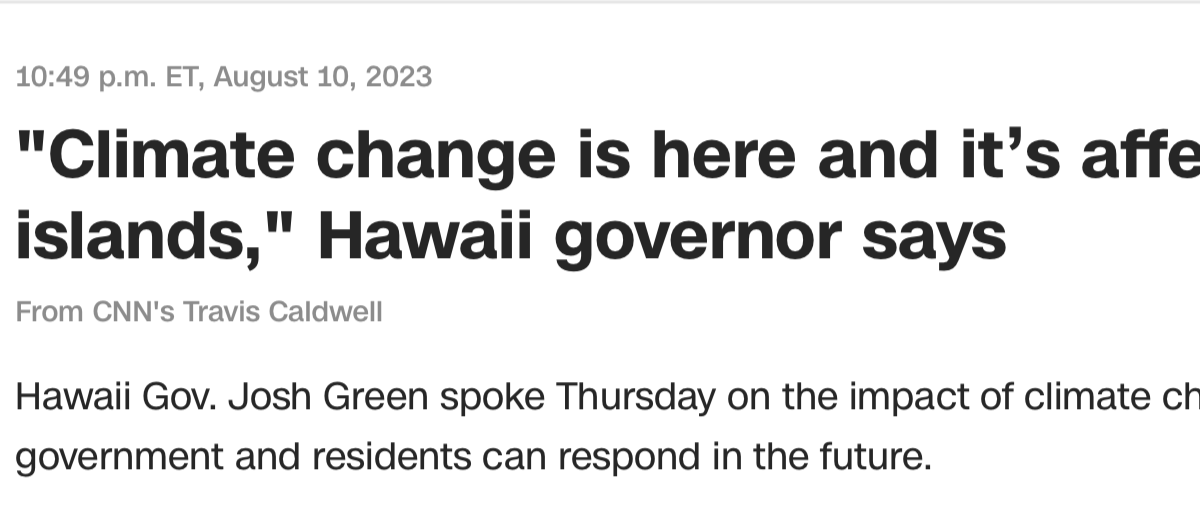John Farley
Supporter
To me, not also activating the sirens when warnings were sent via phone alerts and media is unconscionable. It is a truism in disaster research to maximize redundancy in emergency messaging. No single method of disseminating warnings ever reaches everyone, so the more methods used, the more people are reached. And it is not a bad thing if people get warnings more than one way, because research shows that receiving multiple messages about the danger increases the likelihood of action. In this case, the phone alerts and media messages were largely useless, because cell phone systems and power went down early in the event. At least the sirens, assuming they would have worked, would have reached people that were not reached by other methods. Hawaii has one of the most extensive siren systems in the country, but what good are they if they are not activated?
Hawaii's emergency siren warning system was silent during Maui wildfires | CNN
Hawaii's emergency siren warning system was silent during Maui wildfires | CNN



